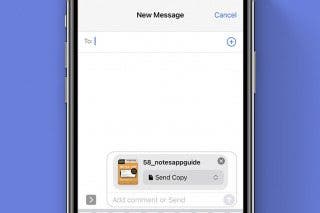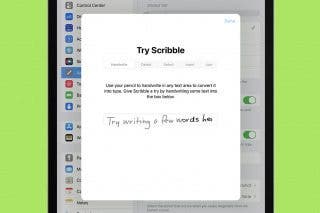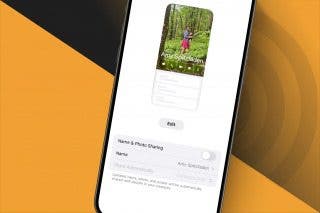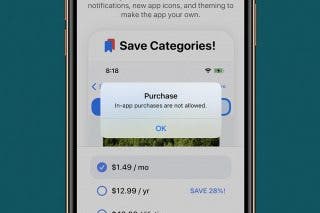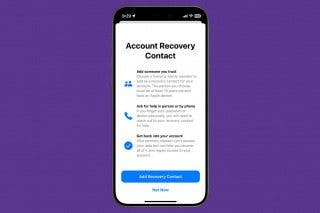WWDC 2020: All the Features & Devices We Expect to See at the Next Apple Event


Apple showcases new software for its devices every June at the World Wide Developers Conference (WWDC), a mecca for developers and system engineers eager to learn about changes for the year ahead. The event traditionally commences with a keynote by Apple's CEO, Tim Cook. While not as captivating a showman as Steve Jobs, Cook's enthusiasm for his company and talented teams is infectious. This year, due to the coronavirus pandemic, WWDC will be an entirely virtual event, with both sessions and the June 22 keynote held online. In keeping with tradition, Apple should debut the next version of iOS, iPadOS, watchOS, tvOS, and macOS at WWDC. In anticipation of the new releases, I've collected the top rumors and leaks for this year's announcements, along with some wishful thinking and speculation. Let's open the rumor window to the future and see what Apple might share with the world this June.
Related: WWDC 2020 Apple Keynote: When & How to Watch the Next Apple Event
iOS 14 Rumors
iOS 14 Public Release Dates
Expect Apple to release beta versions of iOS 14 over the summer and the official shipping versions of iOS 14 late September. Given that every other Apple OS is named for the platform it runs on, it’s possible Apple could rename the iOS to iPhoneOS.
Which iPhones Will Work with iOS 14?
MacRumors reports that iOS 14 will run on the same iPhone hardware that runs the current operating systems. The exception is the iPad Air 2 and the iPad Mini Series 4, which use older A8 and A8X chips. If this is true, that means even my 2016 iPhone SE should run iOS 14.
New iOS 14 Features & Improvements
HomeKit
Expected HomeKit improvements include easier Scene management and device control. There are also rumors of facial recognition support for high-end HomeKit-enabled cameras. However, given Apple's guiding principles on privacy protection and the ongoing debate on unauthorized surveillance along with the high percentage of false positive recognition analysis, I suspect that Apple will punt such responsibilities to third parties while requiring users to accept the necessary operating system permissions so they're aware of the privacy considerations around this technology.
Security Upgrades
Apple made big news in the security community in February when it announced that, beginning in September, Safari would no longer connect to sites with Transport Layer Security (TLS) certificates that are more than a year old. This requirement will change how websites manage and renew their security certificates. It also shows just how much leverage Apple has to force the global internet to change with Apple's requirements. Emboldened by this authority, Apple will no doubt project its intentions on other areas of web security best practices. Expect to hear more Safari privacy and security feature announcements at WWDC.
I'm hopeful that Apple will require more secure Domain Name System (DNS) protocols to help prevent imposter websites from fooling your browser into thinking it’s a legitimate banking website. I'd also like to see a new release of Apple's Intelligent Tracking Prevention that prevents websites from fingerprinting and tracking your browser as you surf. I also expect Apple to announce deeper, more seamless integration of its "Sign in with Apple" identity protection service.
Making 3rd-Party Apps the Default
A dream feature that Apple might announce at WWDC is the ability to manually set a third-party app as your default web browser, email platform, music player, and calendar, something Android has supported from the beginning. Today if you’ve installed Google Chrome or Microsoft Edge on your iPhone, you are still forced to launch and use Safari when accessing web links in messages, emails, or other programs. Rumor has it that soon, Apple will allow you to set some third-party apps as the default on the iPhone, iPad, and even the HomePod. The question is, would that third-party support go so far as to integrate Siri's voice commands? If third-party support really is coming to the HomePod, then the answer is probably yes.
Widgets on the iPhone Home Screen
Speaking of iOS features borrowed from Android, home page widgets are anticipated to appear on iOS. They made a moderate splash on iPadOS, so migrating them to the smaller iOS screen would seem like the next logical step, especially since this functionality has also existed on Android since the initial Android 1.0 release in 2008.
Add Celebrity Voices to Replace Siri?
Another long-featured Android differentiator has been the ability to set a custom voice to replace the default speech synthesized voice. Custom voices could be added to iOS via a detected VoiceProvider API. Doing so would allow iOS users to swap out the voice of Susan Bennett, the vocal artist whose voice has been immortalized as the US English voice of Siri, with other voices from third-party providers. It wouldn't be much of a stretch to conceive the idea of having the voice of celebrities like Tom Hanks, Scarlett Johansson, and others be the new voice of Siri. Of course in that scenario, it would be more appropriate to trigger Siri with the phrase "Hey Tom" instead!
Find My Gets Scheduled Location Alerts
New features in Apple's Find My app are expected to support schedule location alert triggers. For example, if you expect your child to be at a bus stop at a certain time of day, Find My could alert you that they either are or are not there at the expected time. Find My could also be a participant in COVID-19 contact tracing by allowing the app to find all those authorized friends and family who may have come into contact with you during a set duration of time in the event of a positive test result.
Smart Car Locks
Other lrumored new features include the CarKey API, giving iOS users the ability to locally lock/unlock car doors, as well as granting trusted iOS carrying family members and friends with temporary unlock code access. This is essentially a mobile extension of what several Homekit-aware smart door locks for the home already offer.
For even more details about the latest iPhone operating system, check out our full iOS 14 rumor roundup!
iPadOS 14 Rumors
iOS 14 Public Release Dates
Expect Apple to release beta versions of iPadOS 14 over the summer and the official shipping versions of iPadOS 14 late September.
Which iPads Will Work with iPadOS 14?
iPad hardware that run the current iOS 13 and iPadOS versions, with the exception of iPads using the A8/A8X chip such as the 2014 iPad Air 2 and the 2015 iPad Mini series, are expected to be compatible with iPadOS 14. Compared to the few remaining Android tablets on the market, that's quite a long support term and one of the main reasons I continue to recommend iPads as the dominant and best supported tablet platform.
Using the iPad Will Be Even Closer to Using a Macbook
Most of the iOS 14 features expected to be announced, will be included in iPadOS 14 as well with added UI improvements specifically for the iPad platform. Apple's recent addition to support mice and trackpads in iPadOS also makes it clear that Apple intends to make iPadOS the successor to macOS, and perhaps in a few years, the two operating systems will merge into a single unified next generation OS. But for now, the incremental improvements Apple is expected to announce at this year's WWDC include the following.
Desktop Browsing Experience
The iPadOS could also use improvements in the full desktop browsing experience of Safari, so we could forget we're surfing the web with a tablet versus a macOS-powered laptop. Such changes would bring the iPad even closer to the functionality of a laptop.
Better Mouse Support
Expanded mouse and keyboard support, including more trackpad gestures and additional support for third- party mouse and trackpad accessories, will also make give iPad users more of a laptop experience. Smarter Apple Pencil detection, tip tracking, better palm rejection and expanded third-party stylus support are likely too.
App Development on the iPad
The most impactful iPadOS 14 rumor is the ability to run Apple's XCode integrated development environment on an iPad. Official support for this would be huge, since doing so would no longer require iOS developers to have access to a modern Mac computer in order to develop iPhone, iPad, watchOS or tvOS apps.
New Hardware
Hardware announcements typically take a back seat during WWDC because the conference is intended for developers to learn the new features and API's of the next release of Apple operating systems. Apple usually only announces new products at WWDC when those products require active developer involvement to mature the platform before its release. With that in mind, here are the possible hardware announcements we may see at WWDC 2020.
Apple Watch & watchOS
A new version of the Apple Watch may also be announced to coincide with improvements being made to watchOS. Apple has positioned the Apple Watch to be the personal health-monitoring assistant, and there have been long-rumored attempts to develop a non-invasive blood glucose monitor that could be a huge enhancement to life quality for existing diabetics. It could also warn individuals of pre-Type 2 diabetic conditions so they can change their lifestyle before its too late. And until a vaccine is widely available to combat the deadly impact of COVID-19, new social distancing features in the Apple watchOS could use proximity sonar to inform when others are breaking through the six-foot protective barrier. The watchOS could also support opt-in contact tracing when the iPhone is unavailable the same way that the LTE watch stays connected to the web when the iPhone's internet connection isn't accessible.
AppleTV &tvOS
Apple TV hardware may also be receiving a new SKU to evolve its support for the latest HDR and 8K content resolutions. More internal memory and a faster GPU to support these higher specs will also allow iOS/tvOS game developers to take advantage of the hardware improvements for more immersive gameplay experiences. tvOS is expected to include the additional HomeKit and multi-factor security-related improvements that iOS 14 is rumored to receive.
HomePod Mini
Apple is rumored to be working on a smaller, less expensive version of its HomePod. Due to the limitations of Siri compared to Amazon's Alexa-powered or Google Assistant-powered home speaker products, HomePod hasn't nearly had the market penetration and acceptance that Amazon and Google assistant speakers have. Besides Siri's perceived lack of intelligence compared to Amazon and Google, the other major limiting factor is HomePod's excessive price. Sure, the audio quality is impressive, but considering Amazon and Google sell comparable audio products at half the price with much smarter backend AI, Apple is way behind the curve in this product category. HomePod Mini may be a way for Apple to address both the price disparity and reintroduce a reconstructed Siri with impressive, developer-extendable smarts.
StudioPods
Another product releases that might be mentioned only in passing may be a high-end, over--ear headphone with the rumored name of StudioPods. These would compete with high-end headsets from Bose and Sony, and likely cost around the same price as Microsoft's recently released Surface Headset 2.
One More Thing
When I attended WWDC in 2003, Steve Jobs surprised us by concluding his WWDC keynote with one more thing. That thing was the iSight camera, a state-of-the-art webcam. He even went so far as to add, in the style of Oprah Winfrey, that everyone there would receive an iSight. While this is wishful thinking, this year’s WWDC would be a great place for Tim Cook to showcase and give away prototypes of the long-rumored augmented reality headset. I honestly can't think of any better way to fully engage a captive audience of enthusiastic developers than to provide first opportunity access to one of Apple's most secretive and highly anticipated products since the iPhone. Such a giveaway would certainly lead to the rise of innovative AR apps from developers.
Another dream demonstration is a foldable dual-screen iPhone or iPad. With Samsung, Motorola, and Huawei already shipping foldable screen mobile devices and Microsoft expected to release dual-screen tablets and phones, all eyes will be on Apple to see if it can improve upon those technologies with its own devices. Apple changed the computing world with the Apple II, the Macintosh, the iPod, and the iPhone. The time has come for the team to do it again with the next big leap forward in the refined elegance of personal computing that will reassert the company's indelible mark in the computer hardware industry.
A much more unlikely announcement during the keynote will be Apple's highly anticipated augmented reality glasses, nicknamed Apple Glasses by many tech news outlets. The latest rumors suggest that this product may be released as early as Spring 2021. If that's the case, Apple won't have another opportunity to share the hardware's technical specifications and API with developers until after the product launches. Nevertheless, it's rumored release date is still almost a year from now and with uncertain impact that the current pandemic is having on product development and manufacturing, it's more likely that Apple will defer the release of their augmented reality glasses until Fall 2021. This will give the company ample time to recalibrate for any development cycle delays caused by the pandemic, as well as give the company an opportunity to focus developer attention almost exclusively on the product at next year's anticipated in-person WWDC.

Mike Riley
Mike Riley is a frequent contributor to several technical publications and specializes in emerging technologies and new development trends. Mike was previously employed by RR Donnelley as the company’s Chief Scientist, responsible for determining innovative technical approaches to improve the company’s internal and external content services. Mike also co-hosted Computer Connection, a technology enthusiast show broadcast on Tribune Media's CLTV.
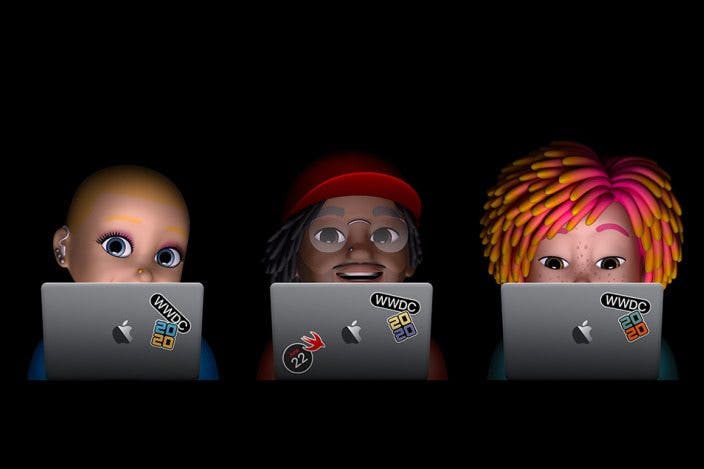
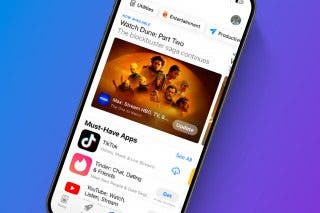
 Rhett Intriago
Rhett Intriago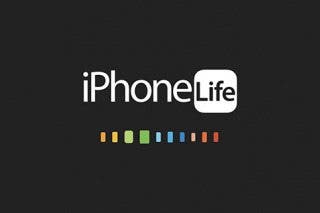
 Susan Misuraca
Susan Misuraca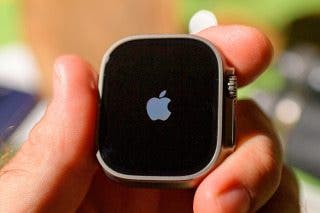
 Olena Kagui
Olena Kagui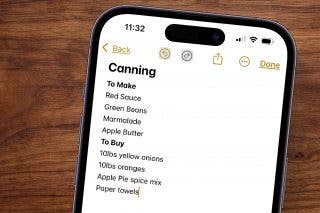
 Leanne Hays
Leanne Hays
 Rachel Needell
Rachel Needell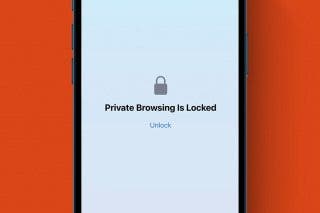
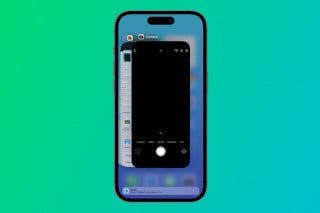

 Nicholas Naioti
Nicholas Naioti